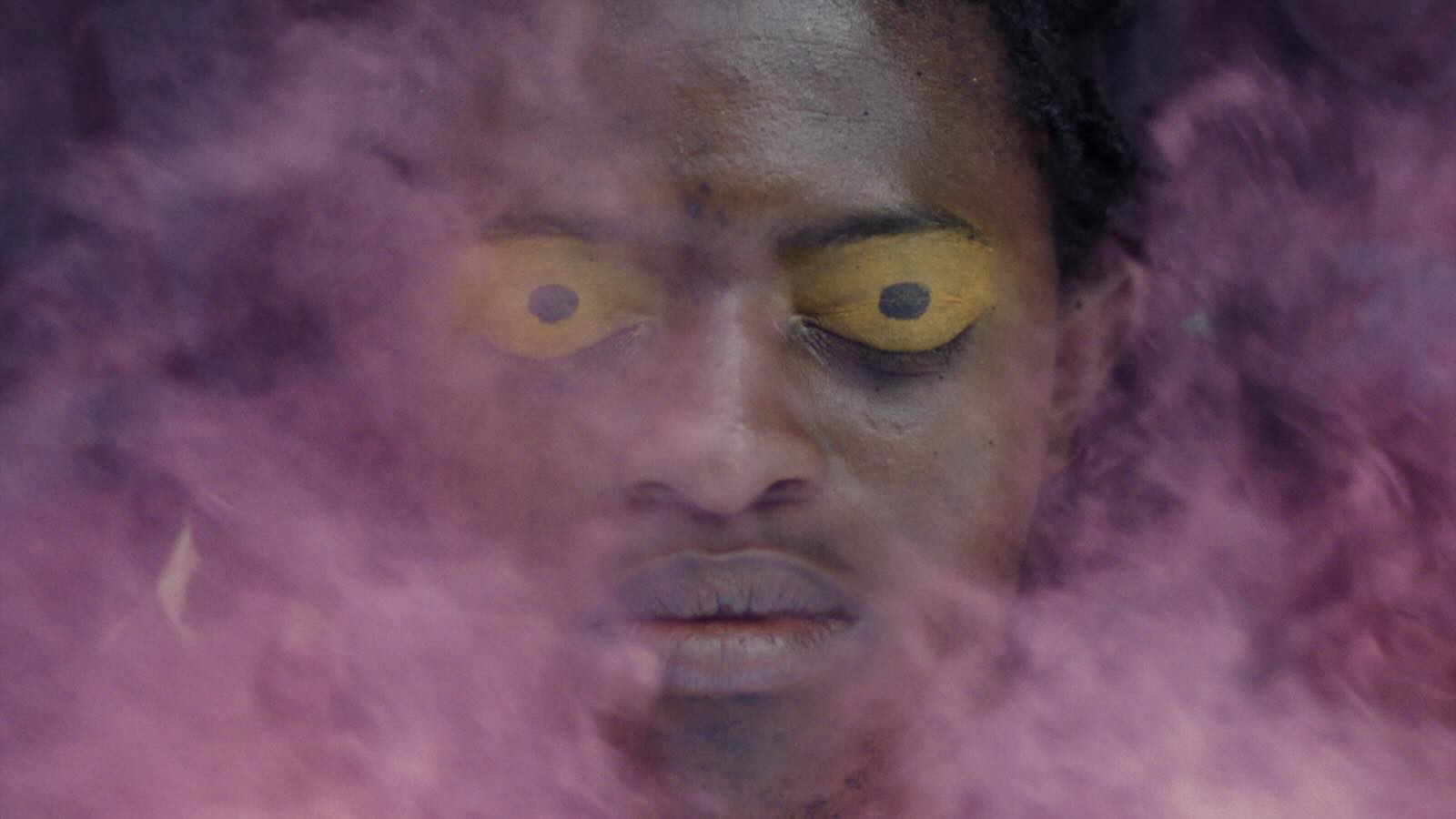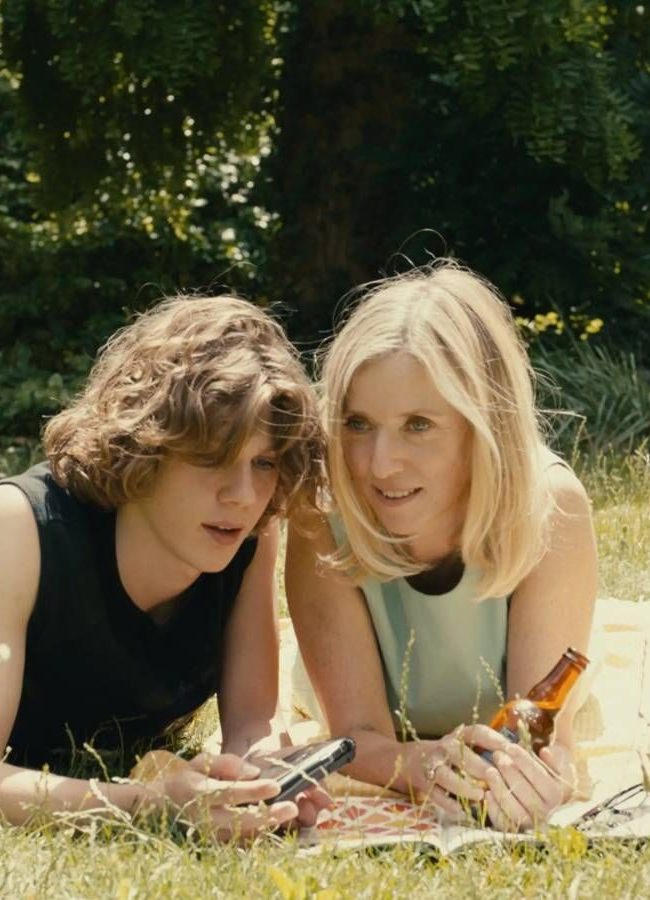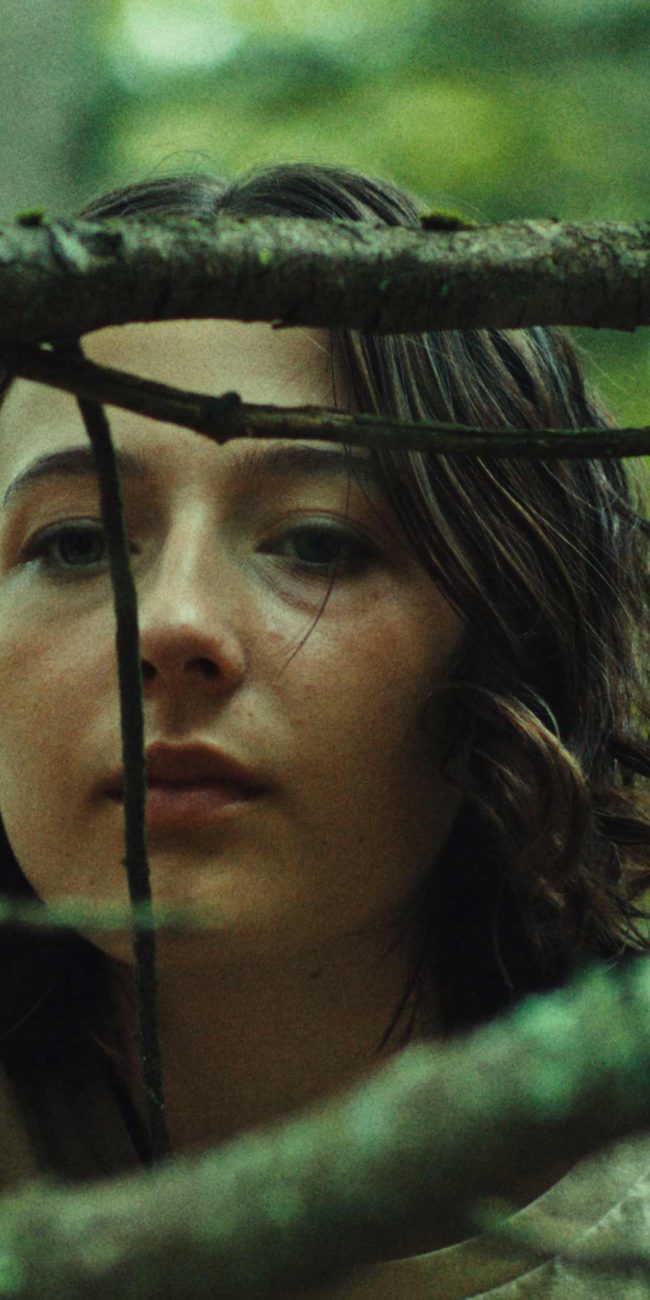OMEN

(New Directors/New Films runs from April 3 – 14 at New York City’s Museum of Modern Art and Film at Lincoln Center. Check out M.J. O’Toole’s review of Omen. It opens in select theaters Friday, April 12 from Utopia.)
Belgian-Congolese rapper Baloji explores the complicated family ties and traditions in his native Democratic Republic of Congo in his feature debut, Omen. One of the most ambitious, barrier-breaking films of this year, the director examines an emotionally complex world in a way that tackles trauma and grief through levels of magical realism. Returning to the country of his birth, Belgian resident Koffi (Marc Zinga) not only finds himself a stranger in his old home but an outcast in his own family. Do they resent him for leaving, or is it something more delicate to them yet bizarre to those living outside their world? Through digging deep into Koffi’s tortured family history, Baloji calls into question how cultural tradition can break apart families, especially those who choose to flee to the West. But no matter what political assumptions are to be made, the director’s creative vision translates confidence in this visually beguiling debut that elicits the dread of being around family you no longer connect with.
The story kicks off with Koffi returning to the DRC with his white fiancée Alice (Lucie Debay) to pay a customary dowry to his family after a 15-year absence. Alice tries to alleviate his anxieties as he hopes to make amends and win back their love. However, they all seem to give him the cold shoulder – even after he tells them he and Alice are expecting twins together. That’s because as a newborn, his abnormal facial birthmark was branded a “zabolo” (aka mark of the devil) by his fearsome, traditionalist mother Mujila (Yves-Marina Gnahhoua), leading to everyone accusing him of being a sorcerer. Baloji gets personal with this aspect of the story as his name, meaning “sorcerer,” had him deal with similar ostracism. Things quickly go from quietly tense and socially awkward to worse after a nosebleed from Koffi accidentally drips on a baby, sending the clan into a panicked frenzy. A tense “cleansing” session with a local priest humiliates him while a helpless Alice looks on. Rather than use sorcery/witchcraft as a magical practice the way more traditional films would, it is more of a hidden force that not only separates families but also as a generational burden.
But Koffi does have one family member to lean on in his more loving, progressive-minded sister Tshala (Eliane Umuhire) who copes with her own form of exile and carries an internal tension from her upbringing. Her relationship with her philandering, STD-prone boyfriend is one small influence on her planned move to South Africa. Her mother is appalled that her daughter would go “live with white Africans.” While both Koffi and Tshala have carried the burdens of prejudice from their family, they still have a deep love for them and even submit to transitional rituals in their desire for acceptance from them. Baloji enters a more mythical City of God-like territory when he turns the focus on Paco (Marcel Otete Kabeya), a young, smock-donning gang member mourning the loss of his younger sister (shown in mystifying Hansel and Gretel fashion). He too was labeled a sorcerer, but he chooses to use it to his advantage on the streets, especially with gang rivalries. He is backed by a gang of fellow ruffians also in pink smocks, which contribute to Omen’s dynamic set-pieces. This segment is where the cinematography by Joachim Philippe reaches its heights through its use of vibrant color and psychedelic aesthetics that take the film in a new direction visually.
Baloji shows that he has compassion for all his characters when we see life through Mama Mujila’s sharp eyes. Behind her cutting gaze, she is haunted by grief and the painful burdens she has carried, especially being married to Koffi and Tshala’s father (who we never see). A moment of loving compassion between mother and daughter unveils a sort of envy she feels towards her two freer children. The stories of these two women also highlight the more profound consequences for women in that society who have been labeled as witches. Baloji’s refusal to write a primary antagonist in this film keenly demonstrates his capacity for empathy in a way that breaks down cultural barriers, while also addressing hidden trauma within people from similar backgrounds. Omen marks a visually thrilling and emotionally layered debut from an innovative filmmaker. Don’t count out the superb performances of the four main protagonists which help give the surreal drama its heartfelt punch. A few loose ends may conjure up questions, but it is one of the many factors of the film that will linger in your mind after the credits roll.
– M.J. O’Toole (@mj_otoole93)
Utopia; Baloji; Omen movie review











